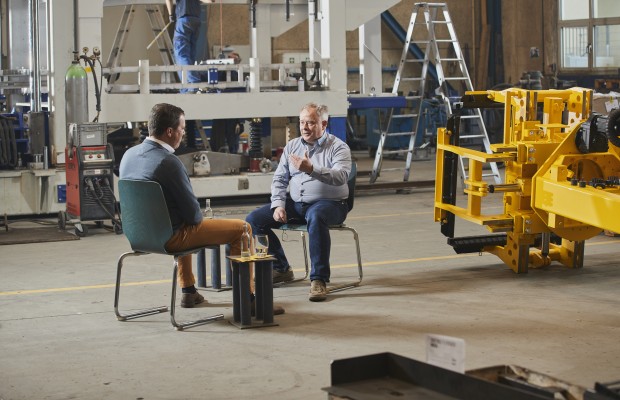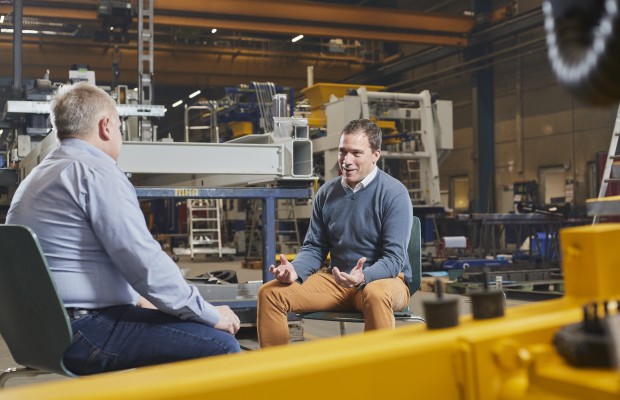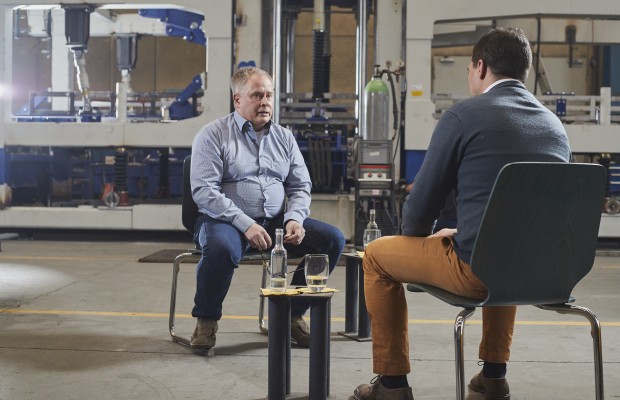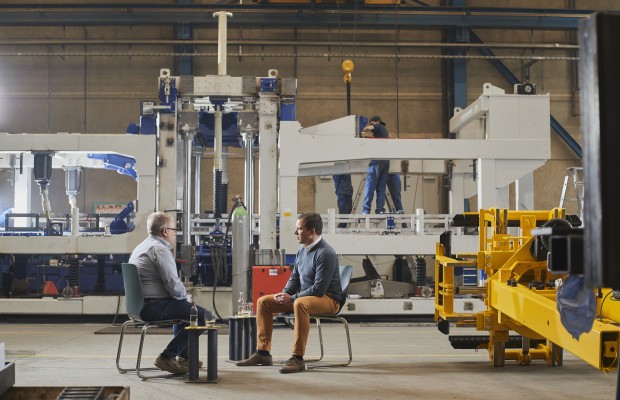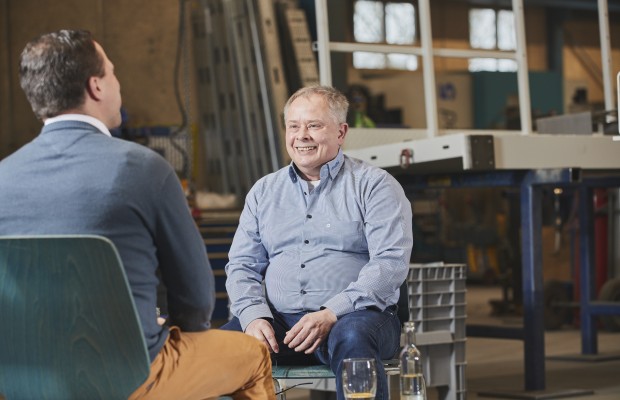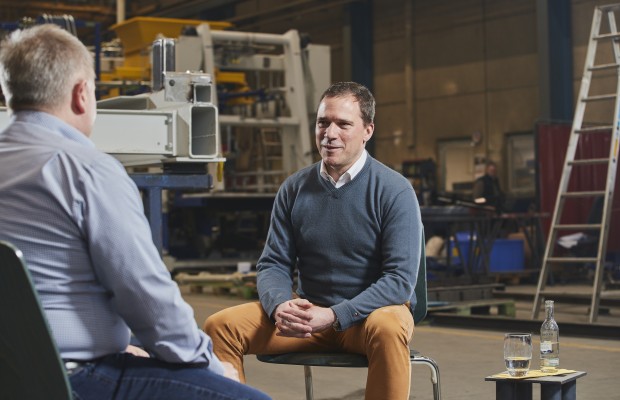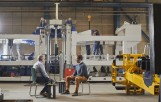Comforting solution against data loss!
Masa expert Markus Feix in an interviewAndernach 16 Feb 2022 - With growing competitive pressure for quality and productivity, concrete block producers are increasingly focusing on ensuring the highest possible plant availability. In this regard, in an interview with CPi editor Mark Küppers, Masa expert Markus Feix talks about the great importance of data backup in production and Masa Smart BackUp as a convenient solution.
Markus Feix is the Head of Masa GmbH's Customer Training and Service Hotline department at the Andernach site since June 2019. The graduate engineer in electrical engineering previously worked as a software developer and currently focuses on the topics of network attached storage (NAS) systems, online training, and knowledge database.
CPi:
Mr. Feix, in daily business, data backup is probably not a top priority for many concrete block plant operators and is often neglected or not dealt with at all. You talk to numerous customers in the plants about this very topic, how do you assess the situation?
Feix:
To put it simply: explosive. Imagine losing all the data from your smartphone in one fell swoop. Contact data, pictures, documents. It hurts if you haven't backed up your data beforehand. How painful must it be to lose data in a block production plant? Both the workstations, which are responsible for operating the machine/fresh side and dry side, and the engineering station, which with the database contains the brain of the plant, are not immune to hardware failures.
CPi:
That does not sound good. What are the main problems that can result from inadequate data backup?
Feix:
To get straight to the point: Every system downtime costs money. So the longer it takes to restore data, the more money you lose. But that's not all. Depending on the situation, you risk losing essential, and above all, individual data such as recipes or parameter settings that you have painstakingly worked out over years. This is similar to a well-known lemonade manufacturer losing their well-kept recipe for their caffeinated soft drink. Of course, he will get it right again. But it simply takes time and thus costs unnecessary manpower and production downtime until there is a production-ready recipe with suitable process parameters again.
CPi:
Every plant operator can do without this experience. With Smart BackUp, Masa has now developed a data backup solution to prevent such scenarios from occurring in the first place. Mr. Feix, please describe this approach in more detail.
Feix:
For example, one of the possible causes of failure in industrial computers is the failure of hard disks. To reduce the associated loss of data, Masa is integrating so-called NAS (Network Attached Storage) systems into production plants. The system, named Smart BackUp, is a backup station equipped with four NAS hard drives. The desired data redundancy is achieved by backing up all relevant plant data on two pairs of hard disks each. In the event of a hard disk failure, the data can be restored from the other hard disks. The backup includes the recipes and product data acquisition database of the production plant as well as all control programs required for automation. The coordination and execution of the fully automatic backups are handled by the Masa Smart BackUp System, which is always active in the background. Restoring the data in this way can easily be done online by Masa technicians.
CPi:
But can't you use commercially available backup software for this? The offer is huge. Why should I invest in Masa Smart BackUp instead? What are the clear advantages for the plant operator?
Feix:
At first glance, our BackUp solution does not differ from commercially available software, that's true. But as always in life, the devil is in the details. There are several tangible reasons in favor of the Masa solution. Firstly, the (product data acquisition) database cannot be backed up with conventional backup tools during operation. Such an attempt leads to data loss or, in the worst case, even destroys the complete database. Therefore, we use a special tool, which does not backup the complete hard disk with the database, but backs up the database itself and saves the backup. This requires appropriate know-how.
On the other hand, the integration of new hardware components or operating systems is often a real challenge for the customer's own IT department. The Masa software originally delivered can only be adapted if all data has been properly and completely backed up. Appropriate expert knowledge is then required, and this varies from customer to customer. In practice, for example, it has already happened that the IP address on a computer was changed within a production plant in order to obtain Internet access on short notice. It was not considered that this would simultaneously cause the plant components to lose their ability to communicate with each other. Our specialists know the pitfalls. And once again, the longer a plant shutdown lasts, the more expensive it becomes.
CPi:
Nowadays, more and more software solutions work cloud based. Why do you prefer a hard disk solution, at least for the time being?
Feix:
In my private life, I use the cloud to store photos or videos and thus save space on my hard drive. However, I need to have stable Internet access to upload and retrieve the data. Stone fabrication plants are usually online only when needed. However, a backup solution via cloud only works if there is a permanent online connection. In addition, it is currently not yet too common to back up such sensitive data in the cloud, as special software and corresponding knowledge are always required.
CPi:
Real-time synchronization has also become a keyword. What is the situation with Masa Smart BackUp?
Feix:
We deliberately decided against it. The reason is quickly explained. Real-time synchronization always goes hand in hand with a high system load. However, we want to achieve a balance between system load and security. That's why we prefer a scheduled data backup with a good mix of incremental and differential backup.
CPi:
Can you explain that in a little more detail, please?
Feix:
I'll explain briefly. Incremental means that an initial full backup is made and then only the changed files are backed up. Due to the small data packages per backup, the system load is also low. The disadvantage however, is that in case of a restore I have to start with backup 1, followed by backups 2, 3 and so on. This can be a lengthy process. In contrast, a differential backup is always complete, so all data is always included. Of course, this automatically leads to a high backup load on the data highway. The mixture mentioned could mean, for example, that complete backup 1 is performed on a Sunday with a low load, incremental backups are performed on the following workdays and then differential backups again on Sundays. This keeps the number of backups that must be restored subsequently within a reasonable range.
CPi:
That sounds very plausible. I would still be interested to know to what extent the Masa Smart BackUp can also be integrated into an existing concrete block production plant?
Feix:
From plants with S7 control and correspondingly existing network structure, a subsequent integration makes economic sense. Of course, we check the individual conditions in advance, as each plant is unique. We can only warmly recommend an extension with Masa Smart BackUp to our plant operators. Nowadays, nobody can afford the risk of having to start from scratch with process and plant data or recipes. We will be happy to assist you with the integration as a contact partner and discuss the individual possibilities.
CPi:
One last question, Mr. Feix: What is your next project?
Feix:
At the same time, we are working on a project called MoSo. This is about the condition monitoring of the plant computers as well as the online connection via the RED router. I can report more about this soon ... It remains exciting at Masa.
CPi:
Thank you very much for the interview!
Further content on this topic:
LinkedIn Post "bun machine"
LinkedIn Post Masa Insights "We are the concrete heads - Portrait Markus Feix"

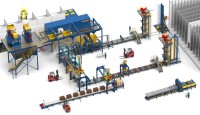 It's a long way from raw materials through the mixture to the finished stone. Many plant components are involved in this process. Only if the system components are matched, can one be assured of a smooth process and economical operation of the block and paver making plant.
It's a long way from raw materials through the mixture to the finished stone. Many plant components are involved in this process. Only if the system components are matched, can one be assured of a smooth process and economical operation of the block and paver making plant.
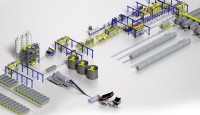 The manufacturing of autoclaved aerated concrete products demands high standards for mixing and dosing of the aggregates, the control of the fermentation process and the control of each production step. Masa's aerated concrete installations are proven advanced technology processes, designed according to customers specific requirements. This approach allows complete solutions to ensure highly efficient, optimised processes resulting in consistent final product quality.
The manufacturing of autoclaved aerated concrete products demands high standards for mixing and dosing of the aggregates, the control of the fermentation process and the control of each production step. Masa's aerated concrete installations are proven advanced technology processes, designed according to customers specific requirements. This approach allows complete solutions to ensure highly efficient, optimised processes resulting in consistent final product quality.
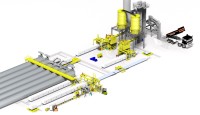 It's a long way from raw materials through the mixture to the finished sand lime bricks. Many plant components are involved in this process. Only if the system components are matched, can one be assured of a smooth process and economical operation of the sand lime brick production plant.
It's a long way from raw materials through the mixture to the finished sand lime bricks. Many plant components are involved in this process. Only if the system components are matched, can one be assured of a smooth process and economical operation of the sand lime brick production plant.
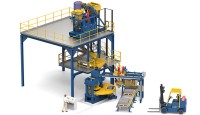 It's a long way from raw materials over mixture to the finished (Kerb)stone. Masa Kerbstone presses were developed to fulfill among other criteria, the special requirements of the "British Standard" kerbstones. This "British Standard" is still a condition in countries of the Middle East and the UK.
It's a long way from raw materials over mixture to the finished (Kerb)stone. Masa Kerbstone presses were developed to fulfill among other criteria, the special requirements of the "British Standard" kerbstones. This "British Standard" is still a condition in countries of the Middle East and the UK.
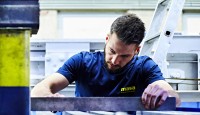 Masa plants and machines are installed and commissioned by our own experienced fitters. Masa relies on qualified personnel, trained in Germany.
Masa plants and machines are installed and commissioned by our own experienced fitters. Masa relies on qualified personnel, trained in Germany.
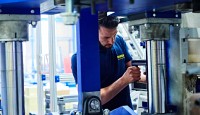 The Masa Lifetime service extends far beyond the actual assembly and commissioning of a plant. Masa can rely on specific know-how and an industry experience of more than 110 years.
The Masa Lifetime service extends far beyond the actual assembly and commissioning of a plant. Masa can rely on specific know-how and an industry experience of more than 110 years.
 Do you need support with your machine? Masa Support scores in both quality and significantly improved accessibility. Whether "first aid" for technical problems, updates, functional expansions of your production plant or technical questions, the know-how provided by Masa Support covers a wide range of services.
Do you need support with your machine? Masa Support scores in both quality and significantly improved accessibility. Whether "first aid" for technical problems, updates, functional expansions of your production plant or technical questions, the know-how provided by Masa Support covers a wide range of services.
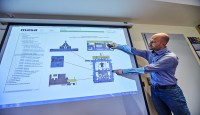 One of the keys to increasing productivity and quality is continuous training of the machine and maintenance personnel.
One of the keys to increasing productivity and quality is continuous training of the machine and maintenance personnel.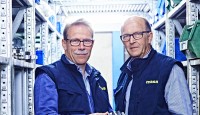 Are you looking for your contact? The Masa Service team introduces itself.
Are you looking for your contact? The Masa Service team introduces itself.
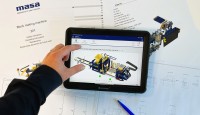 The Masa Service Cloud is the latest product in the family of digital products.
The Masa Service Cloud is the latest product in the family of digital products.

